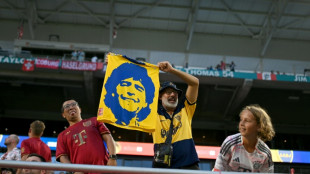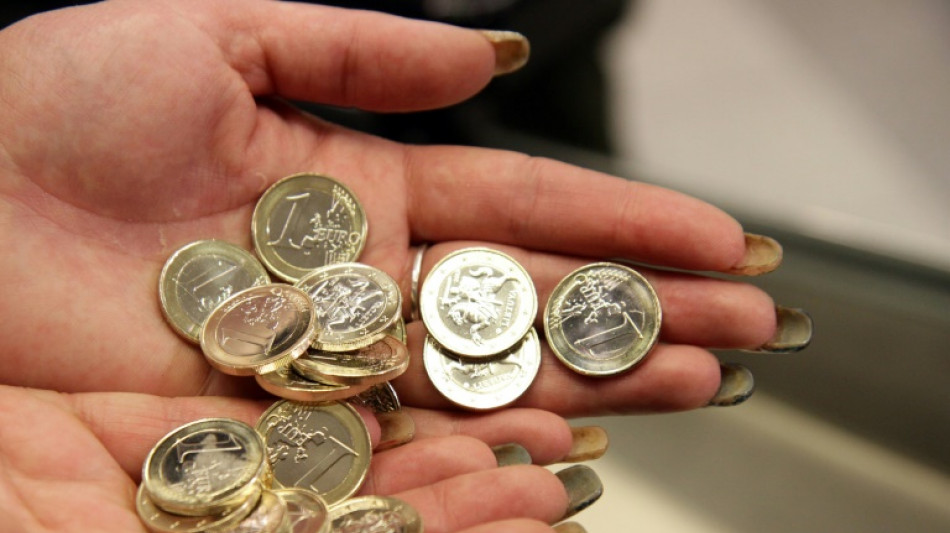
-
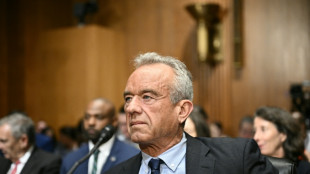 RFK Jr panelists make initial changes to childhood vaccine schedule
RFK Jr panelists make initial changes to childhood vaccine schedule
-
Progress stalled on Canada's pollution reduction goal

-
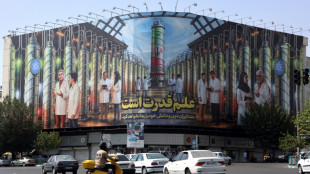 UN Security Council votes on reimposing Iran nuclear sanctions
UN Security Council votes on reimposing Iran nuclear sanctions
-
Depleted France eager to 'throw sand in England's machine' in World Cup semi-final
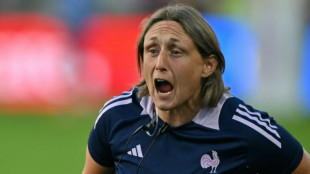
-
 Barcelona beat Newcastle, Man City see off Napoli in Champions League
Barcelona beat Newcastle, Man City see off Napoli in Champions League
-
Texans' Ward won't face domestic violence charges

-
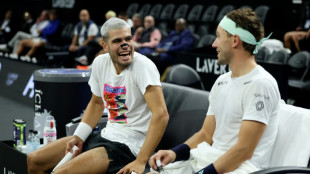 Alcaraz headlines Team Europe in Laver Cup title defense
Alcaraz headlines Team Europe in Laver Cup title defense
-
Rashford bags first Barca goals to seal win at Newcastle
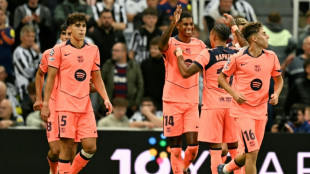
-
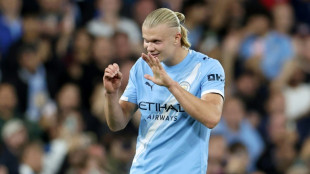 Haaland hits 50 Champions League goals in Man City cruise over 10-man Napoli
Haaland hits 50 Champions League goals in Man City cruise over 10-man Napoli
-
Dodgers pitching icon Kershaw to retire - club

-
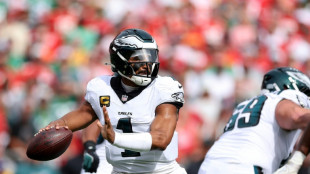 Eagles seek answers against Rams in battle of NFL unbeatens
Eagles seek answers against Rams in battle of NFL unbeatens
-
Afghanistan crash out of Asia Cup after six-wicket loss to Sri Lanka
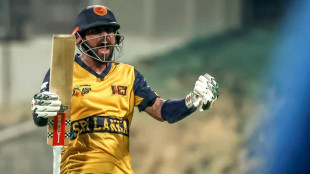
-
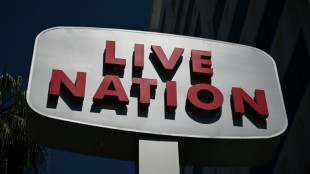 US regulator sues Ticketmaster over 'illegal' ticket schemes
US regulator sues Ticketmaster over 'illegal' ticket schemes
-
US small businesses slam Trump tariffs as legal fight proceeds
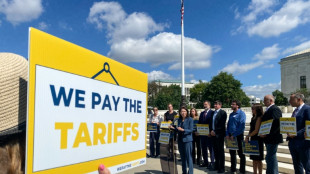
-
 All smiles as Melania and Kate meet kids in first public event
All smiles as Melania and Kate meet kids in first public event
-
EU states agree 'face-saving' broad UN emissions-cutting target
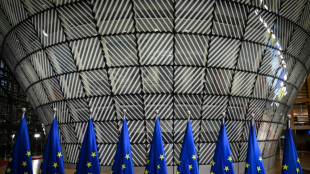
-
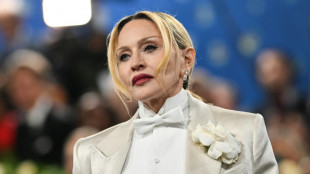 Madonna to release new album next year
Madonna to release new album next year
-
Colombian court issues first sentences for ex-soldiers over civilian killings
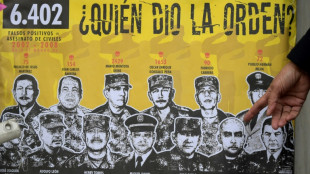
-
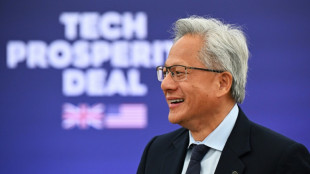 Chip-maker Nvidia takes stake in rival Intel
Chip-maker Nvidia takes stake in rival Intel
-
Putin has let me down, says Trump at end of UK state visit
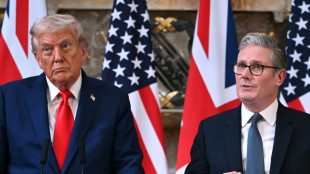
-
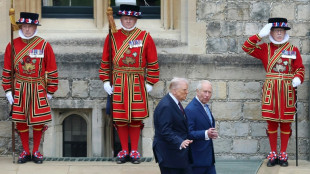 Melania's hat, Epstein's ghost: takeaways from Trump's UK visit
Melania's hat, Epstein's ghost: takeaways from Trump's UK visit
-
UN Security Council to vote on Iran nuclear sanctions Friday
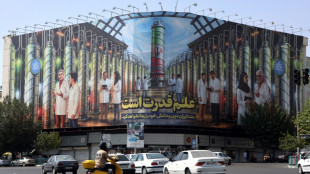
-
 AI-backed robot painting aims to boost artist income
AI-backed robot painting aims to boost artist income
-
Former Barca presidents deny corruption at ref scandal court appearance
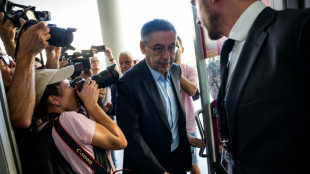
-
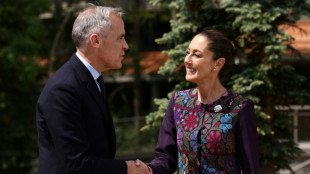 Canada, Mexico leaders meet amid US tariff war
Canada, Mexico leaders meet amid US tariff war
-
Mass rallies, disruptions in France on day of anger against Macron
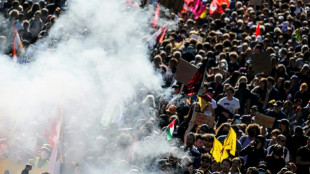
-
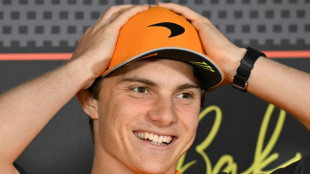 Piastri says team orders clarified at McLaren
Piastri says team orders clarified at McLaren
-
'Box office' McLaughlin-Levrone -- rarely seen but worth the wait

-
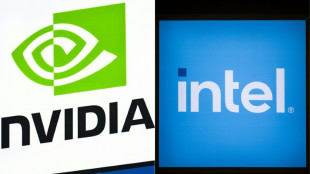 Stocks rise on Nvidia-Intel deal, Fed rate cut
Stocks rise on Nvidia-Intel deal, Fed rate cut
-
US medical panel insists it's 'pro-vaccine'
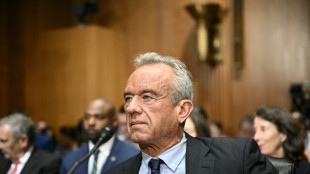
-
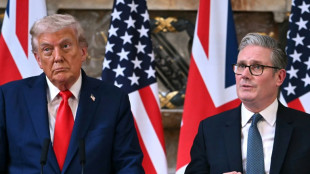 Trump says Putin has 'let me down' as UK state visit ends
Trump says Putin has 'let me down' as UK state visit ends
-
IMF proposes US Treasury official as second-in-command
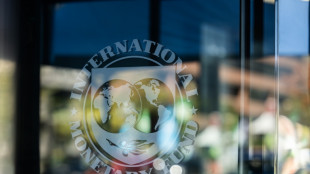
-
 McLaughlin-Levrone mulls Olympic 400m double after silencing doubters
McLaughlin-Levrone mulls Olympic 400m double after silencing doubters
-
McLaughlin-Levrone steals the show at worlds, Botswana take men's one-lap gold

-
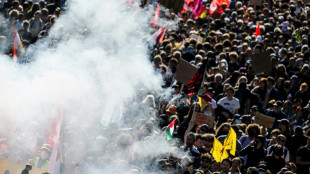 Clashes, disruption in France on day of anger against Macron
Clashes, disruption in France on day of anger against Macron
-
Mitchell defends England's 'route-one' tactics at Rugby World Cup

-
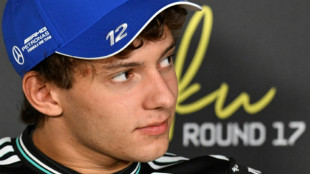 Antonelli vows to bounce back from Wolff criticism
Antonelli vows to bounce back from Wolff criticism
-
Mourinho appointed at Benfica as he returns to Portugal
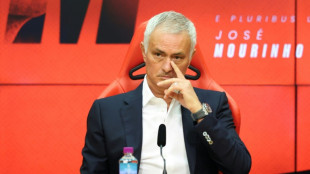
-
 McLaughlin-Levrone powers to 400m world gold in second fastest time ever
McLaughlin-Levrone powers to 400m world gold in second fastest time ever
-
Costs of Russian, Chinese cyberattacks on German firms on rise: report
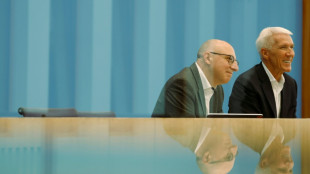
-
 McLaughlin-Levrone nears world record as she wins women's world 400m gold
McLaughlin-Levrone nears world record as she wins women's world 400m gold
-
Australian teen Gout hungry for more after worlds exit
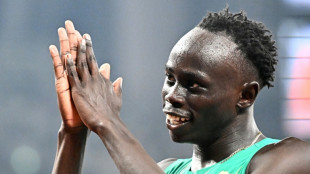
-
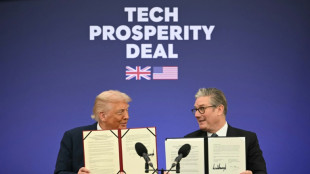 Trump, Starmer sign tech deal to seal 'unbreakable bond'
Trump, Starmer sign tech deal to seal 'unbreakable bond'
-
Lyles, Tebogo sail into world 200m final but Gout out
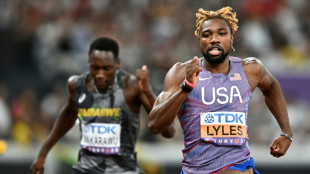
-
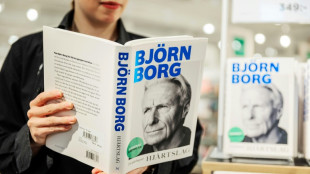 Tennis legend Bjorn Borg reveals cocaine use in memoir
Tennis legend Bjorn Borg reveals cocaine use in memoir
-
Clashes, disruption in France on day of anti-Macron 'anger'
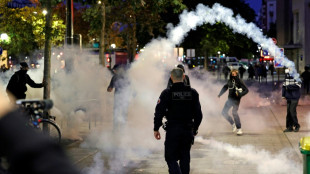
-
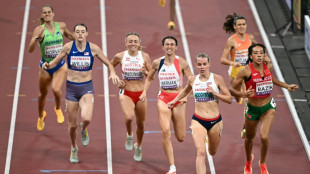 Hodgkinson settles nerves in Tokyo after injury doubts
Hodgkinson settles nerves in Tokyo after injury doubts
-
Coventry praises Milan-Cortina venue progress as IOC executives meet in Milan
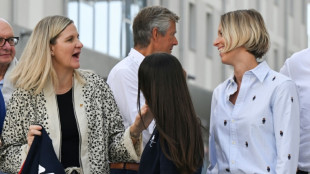
-
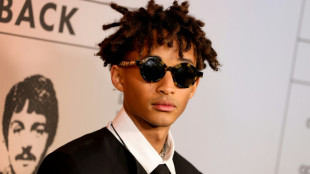 Jaden Smith at Louboutin stirs fresh 'nepo-baby' fashion debate
Jaden Smith at Louboutin stirs fresh 'nepo-baby' fashion debate
-
Bank of England holds rate as inflation stays high
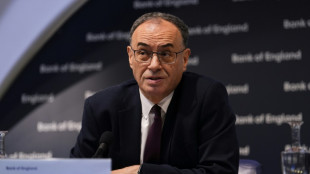

Defence, joint debt and farmers: EU draws budget battle lines
When the European Union unveils its long-term spending proposals next week, it will kick off the bloc's biggest budget battle in recent history.
EU chief Ursula von der Leyen has a mammoth task on her hands: present a budget for 2028-2034 that supports farmers, helps member states ramp up their defence spending, and all while paying back the debts racked up during the covid pandemic.
The European Commission, the bloc's executive arm, will outline the proposals Wednesday, setting the stage for explosive debates with capitals and EU lawmakers over the next two years.
The previous 2021-2027 budget was worth around 1.2 trillion euros ($1.4 trillion) and made up from national contributions -- around one percent of the member states' gross national income -- and money collected by the EU such as customs duties.
The European Parliament has already made it clear it wants more money.
Von der Leyen wants the budget to address the EU's priorities: security, competitiveness and better preparing the 27-country bloc for economic shocks.
But the EU wants to achieve this while reining in ballooning public debts and deficits, and simultaneously bolstering its industries to catch up with rivals in China and the United States.
- Better EU security -
Security will be top of von der Leyen's mind as she makes the finishing touches to the budget with war still raging in Ukraine and fears among member states of a more aggressive Russia.
It is more important given the NATO military alliance last month pledged to spend significantly more on defence -- some five percent of national economic output.
There are 23 EU members in the Western military alliance.
Also under consideration is a 100-billion-euro fund to keep Ukraine afloat, but one EU official said it could change between now and Wednesday.
Von der Leyen this week vowed to support Ukraine "until 2028 and beyond, when the new European budget kicks in".
Under EU treaties, the bloc cannot spend directly on defence, but it can pour money into dual-use infrastructure like bridges that would be critical during a war.
- Supporting farmers -
The EU's common agricultural policy (CAP) -- vast farming subsidies that make up the biggest share of the budget -- will be the subject of fiery debates.
It accounts for nearly a third of the EU's current multi-year budget -- around 387 billion euros, of which 270 billion euros are directly paid to farmers.
The EU is thinking about moving away from subsidies based on farm size -- and putting a cap on how much one farm can get -- which could free up billions of euros.
"There is a growing recognition that its share in the EU budget should decline and I also expect it to decline further," said Zsolt Darvas of Bruegel think tank.
The commission is considering cutting part of the agriculture budget without touching the direct payments, but farmers have made it clear that's a red line.
"I have a tractor and I'm ready," Massimiliano Giansanti, president of Europe's influential Copa farming lobby, raising the spectre of more farmers' protests after months of demonstrations last year by disgruntled European farmers.
Farmers plan to protest Wednesday in front of the commission in Brussels as they seek to pile the pressure on the EU.
Brussels is also looking into whether CAP will keep its dedicated budget or be integrated into wider cohesion funds, with allocations left to member states to decide.
France, whose farmers are the biggest CAP beneficiary, opposes this.
- How to pay for it? -
The big question looming over everything: where will the money for all this come from?
France, Italy and others are pushing for more joint borrowing but that's a no-go for Germany, a major net contributor to the budget, as well as frugal EU states Finland, The Netherlands and Sweden.
One idea put forward has been an instrument that would allow the EU to seek grants or loans in the event of a crisis like the pandemic.
Since some states would fiercely oppose such a measure, an EU diplomat said he had seen the idea appear and disappear from draft texts shared with capitals.
Other options to raise money include a possible digital services levy as well as collecting money from taxes on small packages entering from outside the EU.
The last time the EU took on joint debt was during the pandemic, borrowing around 800 billion euros to rescue the European economy.
Except now the bloc must start paying that money back -- potentially up to 30 billion euros annually -- from 2028.
T.Germann--VB

